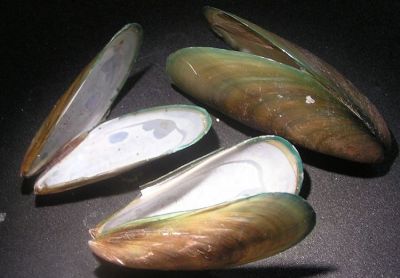|
|
|
|
|
SELANGOR, Malaysia, Sept 19, 2014 - (ACN Newswire) - A research team in Malaysia has concluded that caged mussels are useful for monitoring heavy metal contamination in coastal waters in the Strait of Johore. Transplanted or caged mussels have previously been used in Argentina, the Mediterranean Sea, Boston Harbour, and the South Pacific to identify areas of metal pollution.
 | | Monitoring heavy metals using mussels |
The researchers, who published their findings in the Pertanika Journal of Science and Technology, used caged mussels (Perna viridis) transplanted from relatively clean waters of the Strait of Johore to assess heavy metal concentrations in a more polluted stretch. An important area for fishing and aquaculture, the Johore Strait separates the Malaysian state of Johore from Singapore.
The study showed that the eastern part of the Strait was significantly more polluted with cadmium, copper, iron, nickel, lead and zinc than the western part. It also found that the byssus or external filaments of P. viridis are particularly effective biomonitors of cadmium, nickel, lead and zinc, while the mussel's shell can be used to monitor copper, nickel and lead.
Zinc accumulated the fastest in the transplanted mussels, while cadmium accumulated the slowest.
According to the researchers, marine mussels are suitable for transplantation experiments because they are inexpensive and reliable. In addition, P. viridis:
- has a sedentary lifestyle;
- has enough tissues for metal analysis;
- is a suspension feeder;
- is tolerant of high heavy metal concentrations; and
- is prone to bioaccumulate and magnify such metals.
For more information about this study, please contact:
C. K. Yap
Department of Biology
Faculty of Science
Universiti Putra Malaysia
43400 Serdang, Selangor, Malaysia
Email: yapckong@hotmail.com
About the Pertanika Journal of Science and Technology
Pertanika Journal of Science & Technology aims to provide a forum for high quality research related to science and engineering research. Areas relevant to the scope of the journal include: bioinformatics, bioscience, biotechnology and bio-molecular sciences, chemistry, computer science, ecology, engineering, engineering design, environmental control and management, mathematics and statistics, medicine and health sciences, nanotechnology, physics, safety and emergency management, and related fields of study.
Website: http://www.pertanika.upm.edu.my/
Reference: Eugene Ng, Y.J., Yap, C.K., Zakaria, M.P. and Tan, S.G. (2013) Assessment of Heavy Metal Pollution in the Straits of Johore by Using Transplanted Caged Mussel, Perna viridis. Pertanika Journal of Science and Technology 21 (1): 75-96.
For more information about the journal, contact
The Executive Editor
Pertanika Journals
Office of the Deputy Vice Chancellor (R&I)
Tower 2, UPM-MDTC Technology Centre
Universiti Putra Malaysia
43400 Serdang, Selangor
Malaysia.
Phone: +603 8947 1622 | +6016 217 4050
Email: ndeeps@admin.upm.edu.my
Press release distributed by ResearchSEA for Pertanika Journal.
Topic: Research and development
Source: Pertanika Journal
Sectors: Metals & Mining, Science & Research
https://www.acnnewswire.com
From the Asia Corporate News Network
Copyright © 2026 ACN Newswire. All rights reserved. A division of Asia Corporate News Network.
|
|
|
|

|
|
|
|